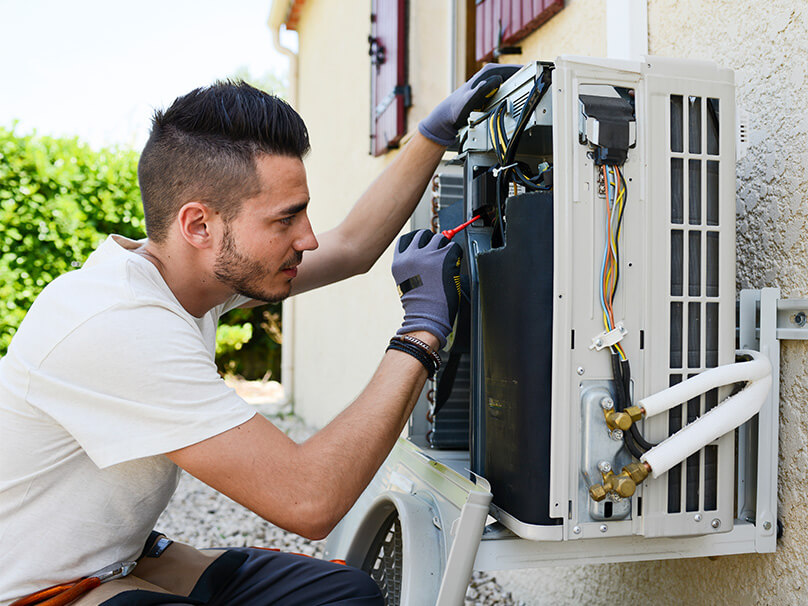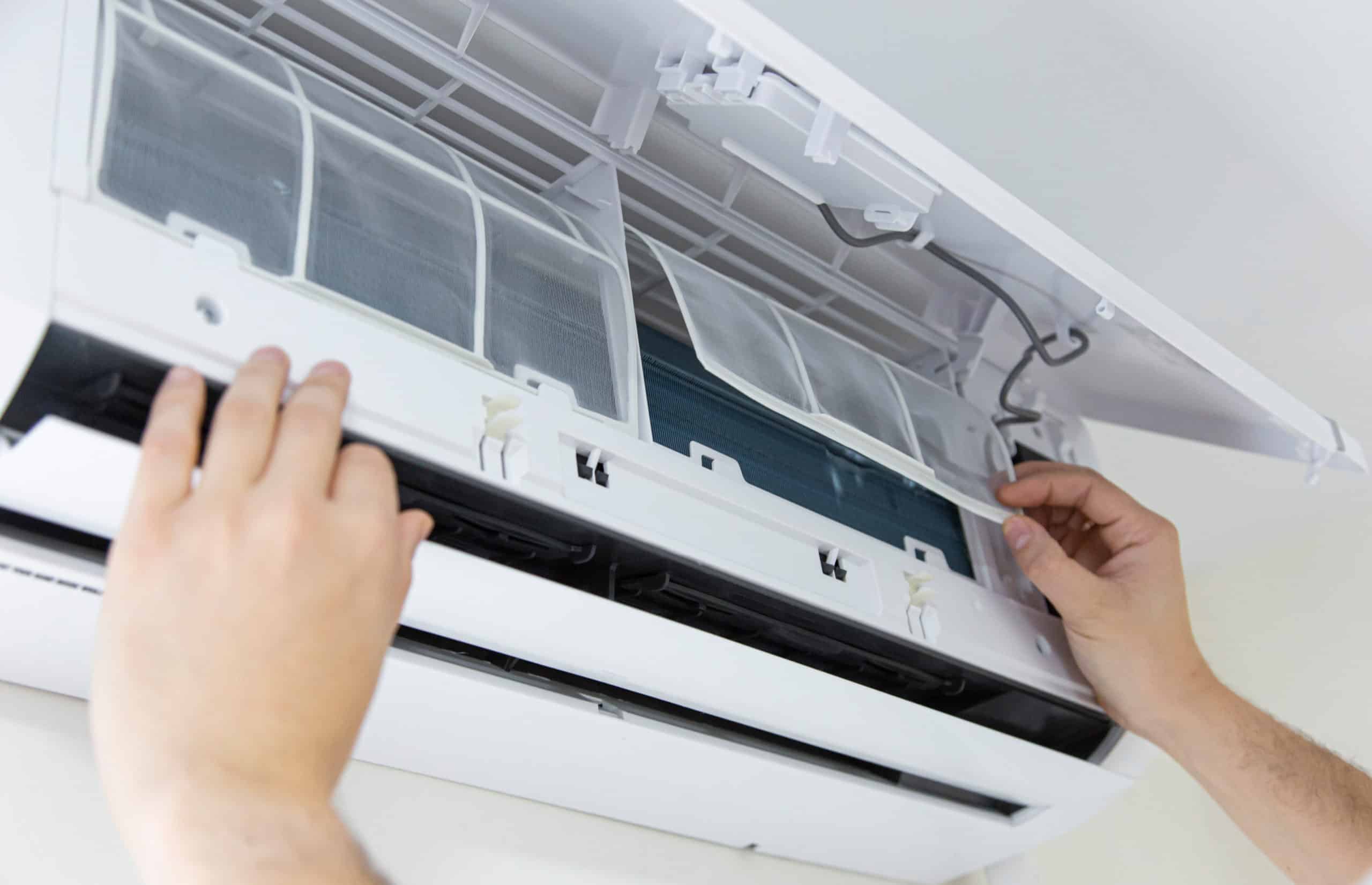The smart Trick of Air Conditioner Repair Near Me That Nobody is Discussing
The smart Trick of Air Conditioner Repair Near Me That Nobody is Discussing
Blog Article
Repair Air Conditioner Near Me Things To Know Before You Get This
AC Air Conditioner Repair: Specialist Cooling System Repair Ensures Your Home Stays Comfortable Throughout The Year
Kinds Of A/c Systems
When dealing with air conditioner repair, understanding the type of cooling system you're dealing with can conserve time, money, and irritation. Ever questioned why some units cool a room much faster than others? Or why certain systems appear to break down more frequently? Let's peel back the layers.
Central Air Conditioning
Our Air Conditioning Repair Near Me Diaries
Picture a cool breeze flowing through a whole house, whispering comfort into every corner. Central air conditioning systems do precisely that. They use a network of ducts to disperse cooled air, depending on a compressor and condenser outside, paired with an evaporator coil inside. However when this complex monster fails, pinpointing the problem can be like finding a needle in a haystack.
Split Systems

Split systems are a popular choice for numerous homes-- part indoor system, part outdoor compressor. They provide versatility and effectiveness, but their dual nature indicates repair work can include either element. Have you ever heard an odd noise outside your house only to find the indoor unit isn't cooling? That's a timeless sign of a split system problem.
Things about Repair Air Conditioner Near Me
Window Units
These compact warriors fight summer season heat by fitting snugly into a window frame. They combine all parts into a single box. Their simplicity typically suggests less repair work headaches, but overlooking filters or enabling particles accumulation can result in diminished performance or breakdowns.
Ductless Mini-Splits
Some Known Details About Fix Air Conditioner
Ductless systems bypass ductwork entirely, making them perfect for homes without existing ventilation. They're quiet, effective, and surprisingly durable. When repair work are website required, specialists should be skilled at managing refrigerant lines and electrical connections-- no little task.
Quick Referral Table
| Type | Secret Features | Typical Repair Work Issues |
|---|---|---|
| Central Air | Ductwork, whole-house cooling | Duct leakages, compressor failure |
| Split System | Indoor & & outdoor units | Refrigerant leakages, fan motor issues |
| Window System | All-in-one, simple installation | Filthy filters, electrical faults |
| Ductless Mini-Split | No ducts, zoned cooling | Line leakages, sensor breakdowns |
Repair Air Conditioner Near Me Can Be Fun For Everyone
Unraveling one of the most Regular A/c Dilemmas
Have you ever wondered why your ac system suddenly stops cooling during a sweltering afternoon? One common offender is an unclean or blocked air filter. This sly bad guy limits airflow, requiring your system to work overtime, which not only decreases performance however can likewise result in early breakdowns. Picture trying to breathe through a headscarf taken in dust-- it's exhausting!
Another regular misstep is refrigerant leakages. These unnoticeable leaks do not just decrease cooling power but can also harm the compressor, the heart of your air conditioning unit. How typically do you look for unusual hissing noises or ice development on the coils? Capturing these indications early can conserve you from pricey repairs down the line.
Beyond the Fundamentals: Lesser-Known Issues
Ac Repair Fundamentals Explained
Often, the thermostat itself is the nuisance. Miscalibrated or malfunctioning thermostats send combined signals, causing the a/c to cycle erratically. Ever experienced your AC turning on and off in fast succession? That's called short cycling, a sly performance drainer that can wear elements quicker than you 'd anticipate.
Electrical problems, such as worn electrical wiring or a malfunctioning capacitor, might hide below the surface. AC Fixing. These frequently manifest as air conditioning systems stopping working to begin or all of a sudden closing down. A professional eye knows to evaluate these parts with accuracy tools, something a casual glimpse will not reveal
Specialist Tips for Diagnosing Common Air Conditioning Problems
Not known Facts About Fix Air Conditioner
- Examine and replace air filters routinely-- every 1 to 3 months depending upon usage and environment.
- Listen for uncommon sounds like rattling or buzzing that might signal loose parts or electrical faults.
- Inspect the outdoor system for particles or clogs that hamper air flow and trigger getting too hot.
- Search for frost accumulation on evaporator coils, a tip towards refrigerant issues or air flow limitations.
- Test the thermostat settings and recalibrate if the temperature level readings feel off.
Quick Recommendation Table: Symptoms & & Probable Triggers

| Symptom | Probable Cause | Professional Tip |
|---|---|---|
| Warm air blowing | Low refrigerant or dirty coils | Clean coils and look for leaks immediately |
| Short cycling | Thermostat concerns or extra-large system | Adjust thermostat settings and seek advice from sizing standards |
| System won't start | Electrical faults or capacitor failure | Test circuitry and replace capacitors as required |
| Water leakage | Blocked drain line or frozen evaporator | Clear drain lines and examine for coil icing |
DO IT YOURSELF Air Conditioning Maintenance Tips
Air Conditioner Repair Near Me Fundamentals Explained
Ever seen your air conditioning system sputtering like an old engine on a hot summer day? Neglecting subtle signs typically indicates more than simply a sweaty afternoon-- it's a start to unanticipated air conditioning repair expenses. However what if you could capture those whispers before they turn into wails? Regular do it yourself upkeep can be your very first line of defense.
Basic Actions to Keep Your AC Running Efficiently
Air Conditioning Repair for Beginners
- Tidy or Replace Filters: A blocked filter resembles trying to breathe through a scarf. Every 1-3 months, inspect and swap out your filters. It enhances airflow and efficiency, preventing compressor pressure.
- Inspect the Condenser Coils: Dust and debris serve as unnoticeable blankets smothering your system's cooling power. Carefully brush or vacuum the coils, but prevent harsh chemicals that might wear down the metal.
- Examine the Drain Line: When was the last time you glanced at your drain pan? A stopped up drain can cause water leakages and foster mold growth. Flushing it with a vinegar service monthly keeps the circulation clear.
- Seal and Insulate: Are your ductworks whispering leakages? Sealing gaps with mastic or foil tape increases effectiveness and minimize irregular cooling.
Pro Tips Beyond the Basics
- Step your unit's voltage to capture subtle electrical wear before it stimulates big issues.
- Listen for unusual hums or rattles-- these acoustic breadcrumbs typically signify loose parts or failing motors.
- Keep outside units shaded however guarantee a minimum of 2 feet of clearance around them for ideal air flow.
Ask yourself: Are you hearing your air conditioner's quiet SOS or just awaiting it to yell? Taking some time for DIY air conditioner upkeep changes reactive repair into proactive care, saving sweat, tension, and yes, cash.
The Definitive Guide for Air Conditioner Repair Near Me
Why Knowledge in Air Conditioner Repair Work Matters
Envision this: your air conditioner unit sputters and groans during a scorching afternoon, leaving you sweltering inside. Would you rely on a novice fumbling with delicate components, or would you look for the peace of mind of a expert AC technician!.?.!? The complexities of modern a/c systems demand accuracy and experience. A slight mistake can intensify a minor malfunction into an expensive catastrophe.
The Basic Principles Of Ac Repair Near Me
Hidden Intricacies Behind the Cool Breeze
Many undervalue the layers concealed beneath the sleek exterior of an a/c system - AC Fixing. From refrigerant leaks that quietly drain effectiveness to malfunctioning thermostats that misread temperature levels, these concerns require more than a fundamental toolkit. Specialists have an eager eye for identifying issues that average homeowners neglect
Necessary Tips for Choosing the Right Technician
Rumored Buzz on Repair Air Conditioner Near Me
- Accreditation and Training: Verify credentials; a service technician trained in the most recent heating and cooling technologies is invaluable.
- Experience with Particular Systems: Not all air conditioner systems are produced equal; discover somebody knowledgeable about your model's peculiarities.
- Diagnostic Technique: Proficient technicians use advanced tools-- like electronic leakage detectors and thermal imaging-- to pinpoint hidden faults.
What to Get out of a Pro's Diagnostic Process
| Step | Function | Professional Insight |
|---|---|---|
| Visual Assessment | Identify obvious wear or damage | Try to find rust or unusual sounds-- an indication typically overlooked |
| Pressure Evaluating | Spot refrigerant leaks | Subtle pressure drops can hint at micro leaks unnoticeable to the naked eye |
| Electrical Checking | Make sure circuit stability | Loose connections can mimic extreme mechanical failures |
Getting My Ac Repair Near Me To Work
Why Do It Yourself Typically Falls Short
Tempting as it is to play with your a/c unit, DIY repairs often miss the root cause. Topping off refrigerant might momentarily cool your space but ignores leaks that intensify over time. Expert specialists don't simply patch signs; they hunt down the underlying mechanical and electrical faults that sap performance.
Everything about Fix Air Conditioner
Concerns to Ask Before Working with
- What diagnostic tools do you utilize to recognize concerns?
- Can you explain the repair procedure and expected outcomes?
- Are you familiar with the refrigerants compatible with my unit?
- Do you follow safety protocols for handling electrical parts?